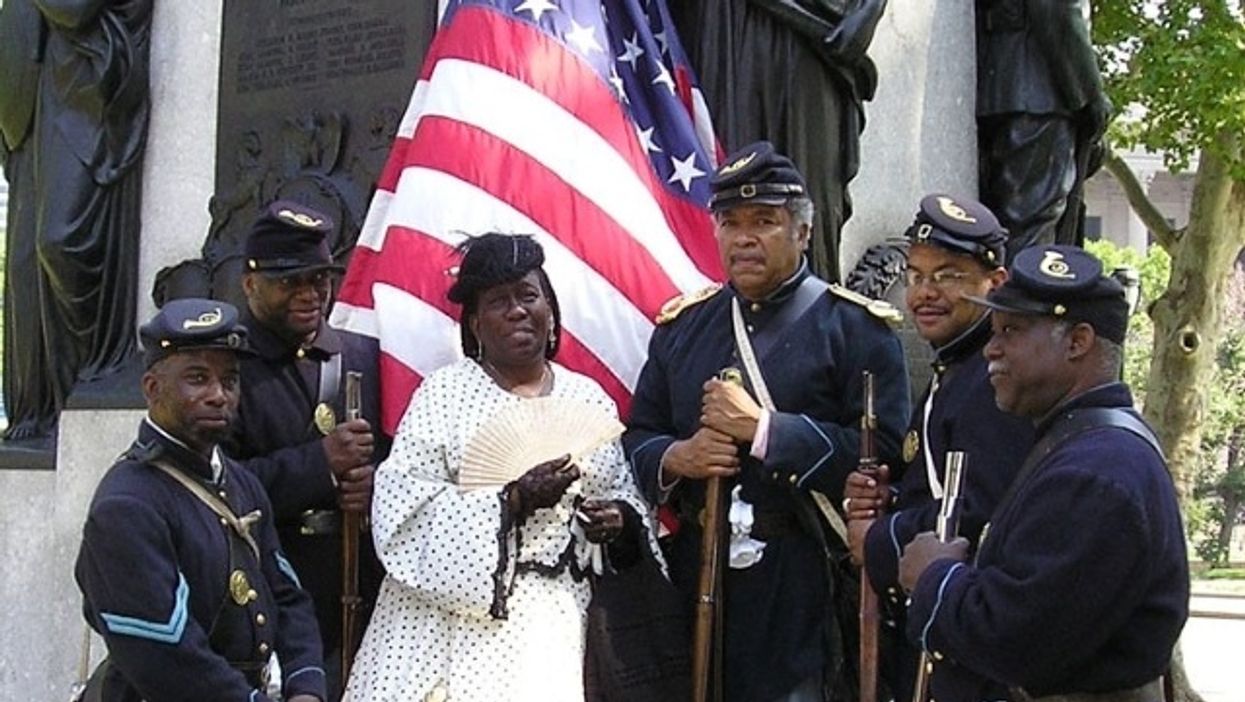Tulsa is an odd choice for multiple reasons. Oklahoma is not expected to be a competitive state in 2020 — typically a consideration when deciding where campaign rallies will be held. Trump carried the state by a 36-point margin four years ago.
But Tulsa also has an ugly racist past.
In May 1921, mobs of white people attacked and murdered black residents there, in an affluent black neighborhood known colloquially as "Black Wall Street." Historians believe as many as 300 people were killed in the attacks, and witnesses recalled seeing some white instigators raiding and looting black homes and setting them on fire.
Most of the neighborhood was destroyed.
Scores of black survivors were eventually rounded up and thrown in detention. Many of the black victims were dumped into mass graves, their bodies never recovered.
Democratic lawmakers say the symbolism of holding a rally in a city like Tulsa, as protesters flood the streets demanding an end to racist police brutality following the death of George Floyd, a black Minneapolis man killed by a white law enforcement officer, is unacceptable.
"Tulsa was the site of the worst racist violence in American history," Rep. Val Demmings (D-FL), a member of the Congressional Black Caucus, tweeted on Thursday. "The president's speech there on Juneteenth is a message to every Black American: more of the same."
Rep. Al Green (D-TX), also a member of the CBC, did not mince words.
"A Trump rally with rebel flags (a symbol of slavery and racism) in Tulsa, OK (the place of #TulsaMassacre) on Juneteenth (a day of emancipation recognition) is more than a slap in the face to African Americans; it is overt racism from the highest office in the land," Green tweeted.
Sen. Kamala Harris (D-CA) tweeted that the decision to hold a rally in Tulsa "isn't just a wink to white supremacists — he's throwing them a welcome home party."
Democratic Rep. Lloyd Doggett (TX) tweeted similarly, "What a horrible place for our bigoted President to organize next rally: location of worst massacre of African Americans in 20th Century. What timing, on Juneteenth — when Union soldiers arrived in Galveston to announce enslaved African Americans were free."
The Trump campaign has not stated whether it chose Tulsa as a rally location intentionally, although spokesperson Katrina Pierson told The Hill on Thursday that the campaign was aware of the importance of Juneteenth.
"As the party of Lincoln, Republicans are proud of the history of Juneteenth, which is the anniversary of the last reading of the Emancipation Proclamation," she said. "President Trump has built a record of success for Black Americans, including unprecedented low unemployment prior to the global pandemic, all-time high funding for Historically Black Colleges and Universities, and criminal justice reform."
Meanwhile, White House press secretary Kayleigh McEnany claimed this week that Juneteenth was a "meaningful day" for Trump, and that he was holding a rally on that day because he wants to "share some of the progress that has been made" for black Americans.
"The African American community is very near and dear to his heart. At these rallies he often shares the great work he has done for minority communities," McEnany told CNN.
In recent days, following a wave of nationwide protests against systemic racism and police brutality, Trump has further stoked racial tensions, tear-gassing peaceful protesters demanding justice for Floyd and countless other black Americans, in order to hold a photo-op at a nearby church.
Trump also tweeted a phrase made infamous by racist cop in the 1960s in order to justify his desire to have the United States military called in to break up some instances of looting and property destruction at the rallies.
"These THUGS are dishonoring the memory of George Floyd, and I won't let that happen. Just spoke to [Minnesota] Governor Tim Walz and told him that the Military is with him all the way," Trump wrote on May 29. "Any difficulty and we will assume control but, when the looting starts, the shooting starts. Thank you!"
Published with permission of The American Independent Foundation.










